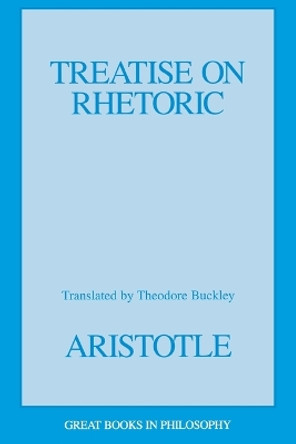Description
The New Rhetoric is founded on the idea that since "argumentation aims at securing the adherence of those to whom it is addressed, it is, in its entirety, relative to the audience to be influenced," says Chaim Perelman and L. Olbrechts-Tyteca, and they rely, in particular, for their theory of argumentation on the twin concepts of universal and particular audiences: while every argument is directed to a specific individual or group, the orator decides what information and what approaches will achieve the greatest adherence according to an ideal audience. This ideal, Perelman explains, can be embodied, for example, "in God, in all reasonable and competent men, in the man deliberating or in an elite." Like particular audiences, then, the universal audience is never fixed or absolute but depends on the orator, the content and goals of the argument, and the particular audience to whom the argument is addressed. These considerations determine what information constitutes "facts" and "reasonableness" and thus help to determine the universal audience that, in turn, shapes the orator's approach.
The adherence of an audience is also determined by the orator's use of values, a further key concept of the New Rhetoric. Perelman's treatment of value and his view of epideictic rhetoric sets his approach apart from that of the ancients and of Aristotle in particular. Aristotle's division of rhetoric into three genres-forensic, deliberative, and epideictic-is largely motivated by the judgments required for each: forensic or legal arguments require verdicts on past action, deliberative or political rhetoric seeks judgment on future action, and epideictic or ceremonial rhetoric concerns values associated with praise or blame and seeks no specific decisions. For Aristotle, the epideictic genre was of limited importance in the civic realm since it did not concern facts or policies. Perelman, in contrast, believes not only that epideictic rhetoric warrants more attention, but that the values normally limited to that genre are in fact central to all argumentation. "Epideictic oratory," Perelman argues, "has significant and important argumentation for strengthening the disposition toward action by increasing adherence to the values it lauds." These values are central to the persuasiveness of arguments in all rhetorical genres since the orator always attempts to "establish a sense of communion centered around particular values recognized by the audience."
About the Author
Chaim Perelman (1912-1984), a Polish-born philosopher of law, studied, taught, and lived most of his life in Brussels. He became the youngest full professor in the history of the Universite Libre de Bruxelles, where he remained for the rest of his career. He was among the most important argumentation theorists of the twentieth century. The New Rhetoric: A Treatise on Argumentation, written with Lucie Olbrechts-Tyteca in 1958, and translated into English by John Wilkinson and Purcell Weaver in 1969, is his chief work. He is also the author of The Realm of Rhetoric (University of Notre Dame Press, 1982).
L.Olbrechts-Tyteca (1899-1987) was a Belgian academic and longtime co-worker of Chaim Perelman. She volunteered in 1948 to support Perelman's work and developed several aspects of the New Rhetoric independently in later years.
Reviews
". . . a readable English translation of this highly influential work in which Perelman and Olbrechts-Tyteca point out historical and systematic inadequacies in much of contemporary logic and methodology." -The Review of Metaphysics
"It is difficult to see how any rhetorician, rhetorical critic, logician interested in verbal logic, or student of either philosophical or popular argument can claim full competence without familiarity with this work. It challenges the orthodoxies of all and suggests fresh modes of inquiry to all." -The Quarterly Journal of Speech
"An important work representing the recent increase of interest in rhetorical studies among Continental scholars. . . . The interest of philosophers of the rank of Perelman and Olbrechts-Tyteca in rhetoric marks a significant break from the influence of Ramus and Descartes upon Western philosophy's concept of reason and reasoning. An important work, highly recommended." -Choice
"One of the best features of the book is that the authors have not merely described kinds of argument used in persuasive discourse, but have constantly shown how such arguments can be countered-and not merely by one's saying 'but that doesn't follow logically'. Even if we abandon the slogan 'deductive or defective' we are not required to abandon all criticism of nondeductive arguments. The non-logical has its own logic." -Mind
"An important book, which should initiate re-estimation of the importance of a liberal art central to antiquity and the Renaissance, latterly eclipsed by the . . . logic of science and mathematics. . . . Dealing primarily with the written word, the authors analyze the constant and the variables in all argumentation, whether addressed to a universal audience or to one's self. Perelman claims that this work marks a break with a concept of reason which has dominated Western thought for three centuries. In 550 pages, he makes a good case for the claim." -The Key Reporter
"Readers will find this volume a fascinating and firm first step toward the solution of some important philosophical problems."-Philosophy and Rhetoric
Book Information
ISBN 9780268004460
Author Chaim Perelman
Format Paperback
Page Count 576
Imprint University of Notre Dame Press
Publisher University of Notre Dame Press
Weight(grams) 765g
Dimensions(mm) 229mm * 152mm * 30mm








